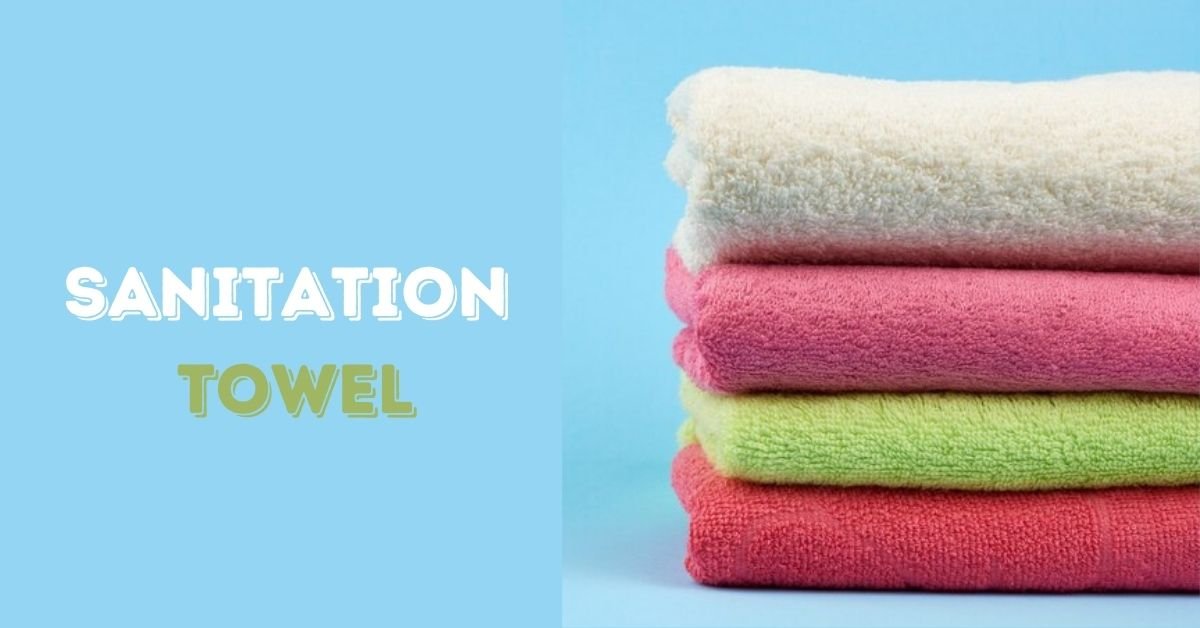Sanitation towel, often referred to as sanitary or hygiene towels, are critical for maintaining cleanliness and hygiene across various settings. Whether you’re in a hospital, a restaurant, or just at home, these towels play a crucial role in keeping surfaces and hands clean. In this guide, we’ll explore the different types of sanitation towels, their benefits, and how to choose and use them effectively.
What Are Sanitation Towel?
Sanitation towels are specially designed cloths or disposable sheets used for cleaning, disinfecting, and maintaining hygiene. They come in different forms and materials, tailored for specific purposes. Understanding these variations can help you select the right type for your needs.
Types of Sanitation Towels
Sanitation towels are not one-size-fits-all. Here are the primary types you might encounter:
Disposable Sanitation Towels
Disposable sanitation towels are typically made from paper or non-woven materials. They are designed for single-use and are highly effective for reducing cross-contamination. Ideal for quick clean-ups and high-traffic areas, they are also convenient for situations where laundering is impractical.
Reusable Sanitation Towels
Reusable sanitation towels, often crafted from cotton or microfiber, are more durable and eco-friendly. They can be washed and reused multiple times, making them a cost-effective option for ongoing hygiene needs. Their durability also makes them suitable for heavy-duty cleaning tasks.
Antibacterial Sanitation Towels
Antibacterial sanitation towels are treated with antimicrobial agents to kill bacteria and prevent the growth of germs. These are particularly useful in environments where hygiene is paramount, such as in medical settings or food preparation areas.
Benefits of Using Sanitation Towels
Sanitation towels offer several benefits that make them indispensable for maintaining cleanliness:
Enhanced Hygiene
By effectively removing dirt, bacteria, and other contaminants, sanitation towels help reduce the risk of infections and maintain a high level of hygiene. This is particularly important in environments where cleanliness is critical, such as in healthcare settings.
Convenience
Sanitation towels are easy to use and dispose of, especially in the case of disposable varieties. This convenience is valuable for quick clean-ups and on-the-go scenarios where traditional cleaning methods may be impractical.
Versatility
From wiping down kitchen counters to cleaning hands, sanitation towels can handle a variety of tasks. Their versatility means they can be used in numerous settings, from domestic to industrial.
Cost-Effectiveness
Reusable sanitation towels are a cost-effective solution for maintaining hygiene over the long term. Although the initial investment may be higher than disposable towels, their reusability offers significant savings over time.
Environmental Impact
Opting for reusable sanitation towels reduces waste and minimizes environmental impact compared to disposable options. By choosing eco-friendly materials and proper disposal methods, you can contribute to a greener planet.
Common Uses of Sanitation Towels
Sanitation towels are used in a wide range of scenarios. Here are some of the most common applications:
Personal Hygiene
Sanitation towels are essential for personal hygiene, especially when traveling or engaging in outdoor activities. They can be used to clean your hands, face, or body, providing a quick and convenient way to freshen up.
Cleaning Surfaces
In kitchens, bathrooms, and other high-traffic areas, sanitation towels are invaluable for wiping down surfaces and removing spills. They help maintain a clean environment and prevent the spread of germs.
Medical Use
In medical settings, sanitation towels are used to clean wounds, disinfect surfaces, and ensure a sterile environment. Their ability to effectively remove contaminants is crucial in preventing infections and maintaining patient safety.
Food Preparation
Sanitation towels with antibacterial properties are vital in food preparation areas. They help keep surfaces clean and reduce the risk of foodborne illnesses by minimizing the presence of harmful bacteria.
Choosing the Right Sanitation Towels
Selecting the right sanitation towel depends on your specific needs. Here’s what to consider:
Material
Different tasks require different materials. For personal hygiene, opt for soft, absorbent materials like cotton. For cleaning surfaces, durable materials such as microfiber are more appropriate.
Size
Sanitation towels come in various sizes. Smaller towels are ideal for personal use, while larger ones are better suited for cleaning larger surfaces.
Antibacterial Properties
If you need a towel for high-risk environments, such as medical or food preparation areas, choose one with antibacterial properties to enhance its effectiveness.
Disposable vs. Reusable
Decide whether disposable or reusable towels best meet your needs. Disposable towels are convenient for quick clean-ups, while reusable towels offer long-term cost savings and environmental benefits.
Caring for Reusable Sanitation Towels
To ensure that reusable sanitation towels remain effective and last longer, proper care is essential:
Washing
Regular washing with hot water and detergent is necessary to remove dirt and germs. Avoid fabric softeners, which can reduce the towel’s absorbency.
Drying
Thoroughly dry towels to prevent the growth of mold and mildew. Air drying or using a dryer on a low setting are effective methods.
Storage
Store clean towels in a dry, well-ventilated area to maintain their hygiene and prevent contamination.
Disposal of Disposable Sanitation Towels
Proper disposal is crucial for maintaining environmental cleanliness:
Use Proper Bins
Dispose of used disposable towels in designated waste bins to avoid littering and ensure they are handled correctly.
Recycling
Whenever possible, choose biodegradable or recyclable disposable towels to reduce waste and minimize environmental impact.
Avoid Flushing
Never flush disposable towels down the toilet, as this can cause blockages and contribute to environmental pollution.
Innovations in Sanitation Towels
The sanitation towel industry is continually evolving with new advancements:
Eco-Friendly Materials
Manufacturers are increasingly using sustainable materials, such as bamboo and recycled fibers, to produce eco-friendly sanitation towels that reduce environmental impact.
Advanced Antibacterial Treatments
New and improved antibacterial treatments enhance the effectiveness of sanitation towels, making them more suitable for high-risk environments.
Smart Towels
Some innovations include smart sanitation towels with embedded sensors that track usage and provide real-time data on cleanliness levels.
Conclusion
Sanitation towels are essential tools for maintaining cleanliness and hygiene in a variety of settings. Whether you prefer disposable or reusable options, understanding their benefits and proper usage can help you make informed choices. By incorporating these towels into your routine, you can enhance hygiene, save costs, and contribute to environmental sustainability.
FAQs
What is the difference between disposable and reusable sanitation towels?
Disposable towels are single-use and ideal for quick clean-ups, while reusable towels can be washed and used multiple times, offering cost savings and environmental benefits.
Are antibacterial sanitation towels necessary for home use?
While not always necessary for home use, antibacterial towels are beneficial in environments where hygiene is crucial, such as kitchens and bathrooms.
How often should reusable sanitation towels be washed?
Reusable towels should be washed after each use or as needed, especially if they become soiled or contaminated.
Can disposable sanitation towels be recycled?
Some disposable towels are recyclable or biodegradable. Check the packaging for disposal instructions and opt for eco-friendly options when available.
What materials are best for sanitation towel?
The best material depends on the intended use. Cotton is excellent for personal hygiene, microfiber is durable for cleaning, and specialized materials are used for antibacterial towels.











